I listened to 100+ hours of podcasts about content marketing so you don’t have to
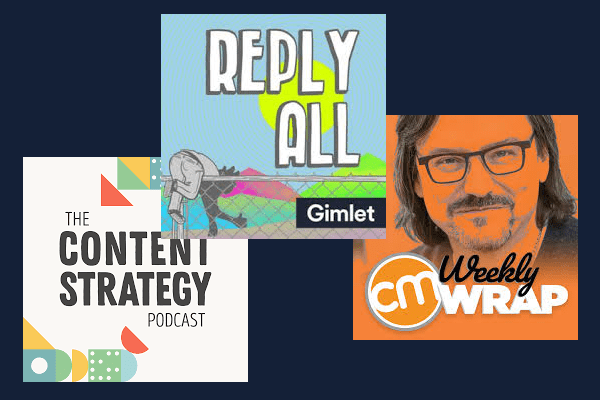
I waded through more than 100 hours of podcasts and let me assure you, it’s not all good content out there. Still, there are plenty of bright spots. To save you the trouble, I’m sharing the 12 episodes that you need to hear if you’re in content creation, strategy, or distribution.
Binge listen to them at 1.5x speed like I did, which honestly, I don’t recommend. For the less masochistic, tackle one per week to get a master class in content creation in less than three months!

Inspiration
Masters of Scale | To scale you must master the art of storytelling
Summary: Host Reid Hoffman (yes, that Reid Hoffman) studies the story of Charity:Water’s founder and CEO, Scott Harrison. The episode explains what makes storytelling so powerful, and why it matters that companies get it right.
What you’ll learn: That a great story makes its audience more open-minded. You’ll hear what about stories makes us love them so much, and how you can harness that power too.
Why I chose it: Beyond being one of the best produced episodes on this list, this episode will remind you why stories, content, and truth matter. Get reinvigorated about the power of content and what stories can do.
“I believe that great companies are built on great stories. And great stories are completely, transparently honest.” – Reid Hoffman
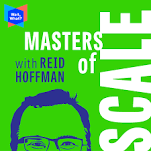
Listen: https://mastersofscale.com/scott-harrison-to-scale-you-must-master-the-art-of-storytelling/
The Inbound Marketing Podcast | 13 Lessons From Interviewing 99 High Performing Marketers
Summary: ‘Inbound marketing’ is a business term for creating and distributing content to get people to come to you, something all content creators do. Need a crash course? Kathleen Booth provides one in her 100th episode of Inbound Marketing. If you don’t have time to listen to the other 99 episodes, she’s identified 13 themes she’s heard over and over again.
What you’ll learn: This episode doesn’t go into specifics, but offers a buffet of great ideas. Individual episodes can be found linked in the show notes if you decide you must hear more about any one person, strategy, or company.
Why I chose it: If you have evergreen content (and you probably do), consider trying out some of these strategies with existing content instead of banging your head against the wall trying to do the same thing over and over again.
“The folks that I interviewed who were the most successful have a few things in common. Number one, they are voracious learners. They’re always trying to improve their knowledge.” – Kathleen Booth

Listen: https://www.impactbnd.com/blog/inbound-success-podcast-100th-episode
The Weekly Wrap
Summary: Robert Rose’s 30-minute podcast includes four segments each week: “one deep thought, one fresh take on the news, one guest who’s making a difference in content, and one great content marketing idea you can use.” There’s also no shortage of wordplay.
What you’ll learn: Whenever I listen to The Weekly Wrap, I take away something. It can be a new idea, or a reminder of why I do things a certain way. A few weeks ago, Rose talked about “how rules and constraints foster the creative response,” and the importance of investing time in a creative brief before launching work on a project. I went back and double checked all of our brief templates to make sure they still asked all the right questions. Make this podcast a weekly staple, and I can’t predict what you’ll learn, but I promise it’ll be worth it.
Why I chose it: Every list needs a rule breaker. I couldn’t pick just one episode, so I suggest you tune in to the most recent weekly episode.
“Right creative brief means difference b/w a great first draft & a creative disappointment.” – Robert Rose
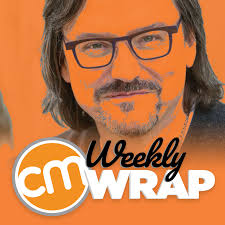
Listen: https://contentmarketinginstitute.com/cmi-weekly-wrap-podcast/
The Modern Marketing Engine | A B2B Coloring Book that Generated Leads and Then Some
Summary: A case study in a successful content marketing campaign, this episode has guest Sean Freidlin of SAI Global talk about how he created a coloring book for compliance officers.
What you’ll learn: Content doesn’t have to be in the format you expect it to be in. If you think about your audience’s needs and the goals of your content first, you might be surprised at what the end result looks like.
Why I chose it: Maybe you’ve heard of companies creating a coloring book as a marketing play, but you probably haven’t heard why. Freidlin didn’t create the book because he saw coloring trending with millennials. Just the opposite, he recognized the emotional state that his customers exist in during their work life and wanted to provide something of value that they could destress with.
“You’re really thinking about not just the job of a Chief Compliance Officer, but how those people must feel when doing their jobs, with an emphasis on [their level of] stress.” – Bernie Borges
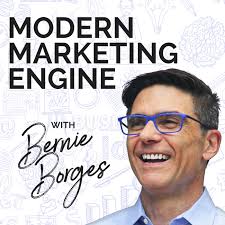
Listen: https://vengreso.com/blog/generate-leads-sean-freidlin
Content Marketing Next | Spotting Non-Obvious Trends to Predict The Future and Win in Business
Summary: Rohit Bhargava, an innovation and marketing expert and the founder of the Non-Obvious Company, gets interviewed by host Pamela Muldoon. Bhargava demystifies trend prediction and describes what trends will impact content in the coming years.
What you’ll learn: What makes a trend. When I read the description, I assumed this would be a fluffy, high-level description that made Bhargava look like a soothsayer. Instead, he described a straightforward framework for identifying trends that anyone can apply.
Why I chose it: This podcast gets the honor of being the oldest on the list, published in 2015. But you’ll barely notice, because the trends he spots and predictions he makes are so commonly discussed now, it would fit in with any recently released episode. He worries that in the future we’ll choose to only read things we agree with, and that news becomes insubstantial as readers want “snackable” content. Sounds familiar.
“There are five habits that anyone can use to curate trends. You can learn to be observant, curious, thoughtful, elegant, and fickle.” – Rohit Bhargava
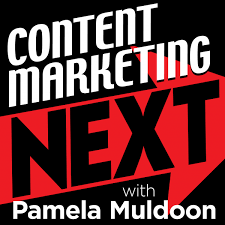
Listen: https://omhub.wordpress.com/2015/04/21/rohit-bhargava-shares-how-to-spot-trends-in-the-non-obvious/ (Because this podcast is so old, it seems to no longer have an original page, however this republished link appears to have the original information).
Content Nuts and Bolts
SkillUp | Writing Content that Ranks
Summary: A mythbusters episode for the current state of content SEO. Think you can stuff keywords into articles or comment on blogs to get ranked on Google? Think again.
What you’ll learn: There’s a lot of outdated SEO information floating around, and some of it leads to bad practices from writers. Though they meander a bit in the middle, eventually the hosts get around to talking about how you should think about SEO and content, through context, topic clustering, and the goals you need to think about for specific content.
Why I chose it: Beyond providing solid information about SEO in general, you’ll also hear some self-awareness in this episode, a trait often lacking in the SEO world. The hosts, Hubspot employees, fully admit that Hubspot has a huge leg up when it comes to SEO because of 10 years of brand authority, and that there’s no magic formula for getting a post to rank.
“Imagine someone with no reputation or background experience, writes a book on a topic that they know very little about. They publish it saying, “I’m going to become a New York Times Best Seller.” It’s like, “No. That will not happen. You have to do the groundwork.” And it’s the exact same in SEO. Just hitting the publish button is not good enough. That is the base minimum level.” – Matt Howells-Barby
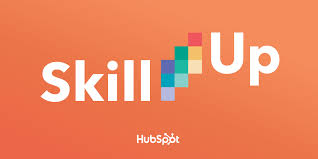
Listen: https://www.hubspot.com/podcasts/skill-up/s01/e03-writing-content-ranks
Growth Marketing Toolbox | Content Marketing Ideas
Summary: This podcast doesn’t waste any time. After a quick introduction of the episode’s guest Hans van Gent, you get five tactics to try if you’re staring at a blank editorial calendar.
What you’ll learn: How you can tap Amazon Kindle, Quora, Flipboard, Evernote, and Twitter for content ideas.
Why I chose it: While you need to master the big picture concepts, like understanding your audience and solving their problems, sometimes you need a spark plug to fire up a brainstorm session.
“Content marketing should solve the problem that your product solves. Content solves it before someone’s ready to buy, and your product solves it after they’re ready to buy.” – Hans van Gent
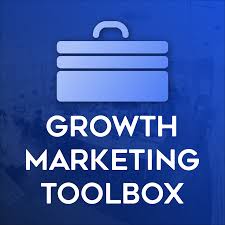
Listen: https://earnworthy.com/hans-van-gent-content-marketing-ideas/
Content Strategy | Karen Kesler and Jonathan Foster, Microsoft // Building Content Teams
Summary: Karen and Jonathan explain the structure of the content team at Microsoft. The company has a 150-person content organization that touches everything from customer communication to Microsoft products, and even bots and AI.
What you’ll learn: Kesler says that Microsoft has seen a “demonstrable return on investment” as a result of bringing in more journalists and creative talent into what was previously more of a technical writing team. Creating a narrative for the product, from conception through delivery, has improved both feature development and customer adoption.
Why I chose it: Content doesn’t live siloed in any department, and the lessons you learn from content can help more parts of your business than you might realize. Journalists, writers, and creatives can help companies make sure they’re keeping the “human” element in their technology.
“We really look for data opportunities to support the work. ‘This is how we move the needle by changing the tone of this language, or by using this kind of voice in a bot, we can see deeper engagement in these numbers.’ We need to keep reminding people that we can add value that is measurable.” – Jonathan Foster, Microsoft
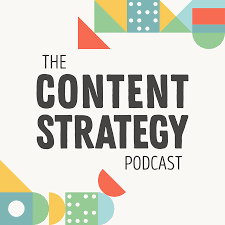
The Digiday Podcast | Bonus: How The Atlantic built its event business
Summary: Digiday Editor-in-Chief Brian Morrissey interviews Margaret Low, president of Atlantic Live, the events arm of The Atlantic, about how it pulls off the mind-blowing task of running almost 100 events a year.
What you’ll learn: You won’t hear many details on event planning from Low, but you will get a sense of how critical good content programming is to a successful event. The team of event producers includes editors and journalists intent on driving the discussion by getting the right people in the room.
Why I chose it: Content is all about the experience and value you bring your audience;events simply add a layer of convening. Could the content you create be turned into an event? Whether you want to build a webinar program out of a successful blog series or focus on video, Low’s advice on what works will apply.
“It’s equal parts editorial, it’s experience, it’s theatrical. You have to keep people engaged. You have to keep people in the room.” – Margaret Low, Atlantic Live
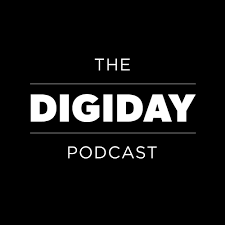
Listen: https://digiday.com/podcast/atlantic-margaret-low-events-revenue/
Newsletters and Email
Marketing Smarts | Putting the ‘Letter’ Back in ‘Newsletter’: Ann Handley Talks Writing
Summary: The queen of content (she wrote the book, Everybody Writes), Ann Handley talks about her very popular Fortnightly newsletter, and what she does to make it so good for the reader.
What you’ll learn: Why you need to think about the goal of your newsletter, the one person who you are writing it for, and the experience you’re delivering to the audience reading it.
Why I chose it: Handley doesn’t suffer (content) fools. We all get asked to sign up for newsletters, and likely ask our audiences to do the same. But what gets delivered in those newsletters? Is it a feed of self-promoting links or a valuable piece of content in its own right? This episode will make you think twice about the former.
“I think we should think less about the “news” part of newsletter, as a distribution vehicle, and more about the ‘letter.’” – Ann Handley, MarketingProfs
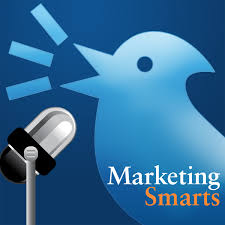
Link: https://www.marketingprofs.com/podcasts/2019/41542/writing-email-ann-handley-marketing-smarts
The Center of Attention | How to think about email as a community
Summary: One of the most successful email newsletters, Quartz’s Obsession, relies not just on great content, but on the community it has created.
What you’ll learn: How the Quartz team created a feedback mechanism where readers could respond and the information would be kept (in the form of a Gmail account and three filters). Now, that feedback loop has led to product improvements, newsletter topics, and sources for the content directly.
Why we chose it: Our team here is obsessed with Obsessions. If you want to get creative in your reader’s inbox, this email is one to get inspiration from. And of course, there’s the obvious, this is a Parse.ly-produced podcast!
“There’s definitely an opportunity to think of email as a community-shaper. I think traditionally it’s Facebook, Twitter, Reddit where community lives. Forums, comment sections. You can see it. You can like it. We just need to get out of that a little bit.” – Eva Scazzero, Quartz’s Product Manager
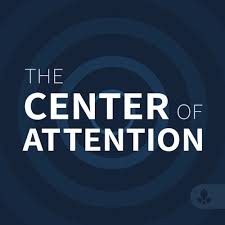
Listen: https://parse.ly/episode-19-why-we-need-to-think-about-email-as-community-with-quartz/
Bonus
Reply All | 30-50 Feral Hogs
Summary: A tweet requesting advice on dealing with feral hogs leads to interviews with politicians, agriculture experts, hunters, and more.
What you’ll learn: A lot about feral hogs.
Why I chose it: If I assigned you a story about feral hogs, would that sound boring? There’s always a way to make something interesting, there are always more questions you can ask and more people to talk to. The Reply All episode provides a master class in making a subject that most dismissed as a viral tweet and meme, into a nuanced, serious and compelling story.
Legit question for rural Americans – How do I kill the 30-50 feral hogs that run into my yard within 3-5 mins while my small kids play?
— Willie McNabb (@WillieMcNabb) August 4, 2019
Listen: https://gimletmedia.com/shows/reply-all/n8hw3d
So that’s a dozen podcast episodes about content, content creation, creativity, distribution, and more, selected and vetted. If you listen to all 12, I have no official educational certificate to send you, but I will celebrate your likely new well of ideas with a pizza.
Email me: pizza@parsely.com and let me know that you finished the content marketing podcast course, and which episodes you liked the most. I’ll send a pie of your choosing.

